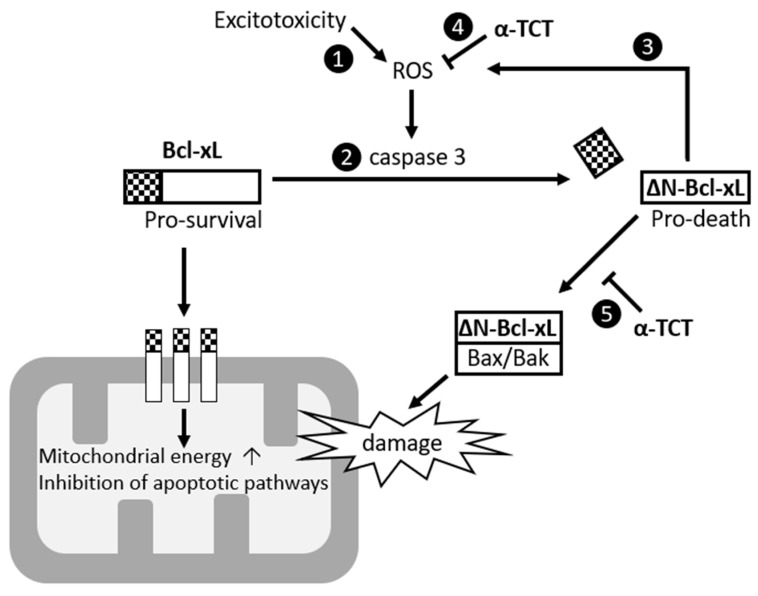Figure 7.
Schematic representation of ΔN-Bcl-xL-induced neuronal death and α-TCT mediated neuroprotection. Excess excitotoxic stimulation causes ROS production (1) in the mitochondria, which triggers caspase activation. Caspase 3 cleaves off the N-terminus of anti-apoptotic full length Bcl-xL to form pro-apoptotic ΔN-Bcl-xL (2). ΔN-Bcl-xL causes mitochondrial dysfunction and initiates mitochondrially mediated apoptotic signaling, which may result in a positive feedback loop to accelerate death pathways (3). This study showed that treatment with α-TCT prevents ΔN-Bcl-xL-mediated mitochondrial dysfunction by scavenging ROS (4), and we also suggest that α-TCT may occupy an active site of ΔN-Bcl-xL, preventing its access to other protein-binding partners such as Bax or Bak that regulate mitochondrial death pore opening (5).

